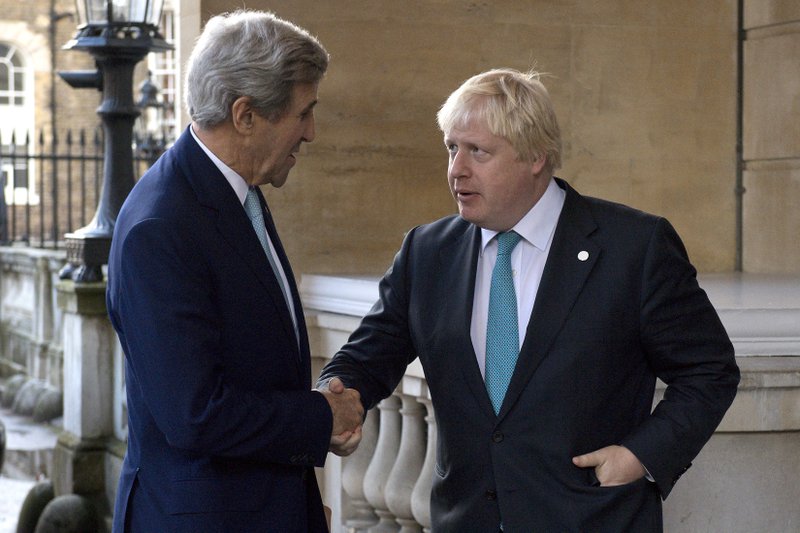LONDON -- The United States and Britain expressed hope Sunday that a cease-fire can begin in Yemen in the coming days, as a flurry of diplomatic negotiations focused on the impoverished, war-torn country.
U.S. Secretary of State John Kerry said mediation is ongoing involving Yemen's exiled, internationally recognized government and the Shiite rebels, known as Houthis, who control much of the country.
Negotiators "are calling today for the implementation of a cease-fire to be implemented by the parties as rapidly as possible, meaning Monday, Tuesday, but moving very rapidly," Kerry said Sunday. "This is the time to implement a cease-fire unconditionally, and then move to the negotiating table."
Key players of both parties -- Yemeni President Abed Rabbo Mansour Hadi, the rebels' lead negotiator and the Saudi Arabian foreign minister -- were said to have agreed to the arrangement.
The United States backs Hadi's government, as well as a Saudi-led coalition that has battled the rebels since last year.
After the meeting in London, Kerry, British Foreign Secretary Boris Johnson and Ismail Ould Cheikh Ahmed, the United Nations' special envoy to Yemen, called for an immediate cease-fire to begin in the coming days. Britain has been under pressure to find a solution to the conflict because it's a key supplier of weapons to Saudi Arabia. In the last nine months of 2015, Saudi Arabia accounted for 40 percent of Britain's military sales.
"The world has had enough of the conflict now in Yemen," Johnson said. "The road map offers a genuine way forward for both sides if they will take that opportunity."
The war has been largely overshadowed by the conflict against the Islamic State militant group elsewhere in the Middle East, though rights groups have increasingly criticized the Saudi-led coalition's airstrikes in recent months, as well as the United States as the coalition's primary weapons supplier. One of those airstrikes -- the bombing of a funeral hall in the capital, Sanaa, on Oct. 8 -- killed at least 140 people.
The U.S. has also in the past week fired Tomahawk missiles after the targeting of a naval warship by Houthi rebels.
In the latest U.S. Navy report, a group of American warships in the Red Sea on Saturday night "had indications of a possible inbound missile threat and deployed appropriate defensive measures," said Capt. Paula Dunn, a spokesman for U.S. Navy Forces Central Command. She said in a statement that all ships and sailors were safe, without elaborating.
An American defense official said Sunday that one of the ships picked up on radar what sailors believed to be missiles being fired out of Yemen at night. The official spoke on condition of anonymity to discuss details of the possible threat that were not yet made public.
The Houthis and their allies did not immediately comment.
The Red Sea and the nearby Bab el-Mandeb strait, a crucial choke point for international shipping and crude oil, has been the scene of what the U.S. describes as at least two missile attacks from rebel-held territory in Yemen. The Tomahawk missiles -- the first shots fired by the U.S. in anger in the conflict -- destroyed mobile radar positions.
The Houthi-controlled Saba News Agency has run dispatches denying that rebels fired on American warships.
Yemen has been at war since September 2014, when the Houthis swept into Sanaa. The Saudi-led coalition of Sunni Arab nations launched a campaign against the Houthis in March 2015.
The U.N. and rights groups estimate the conflict has killed at least 9,000 people and displaced nearly 3 million more.
Information for this article was contributed by Bradley Klapper and Jon Gambrell of The Associated Press and by John Ainger of Bloomberg News.
A Section on 10/17/2016

